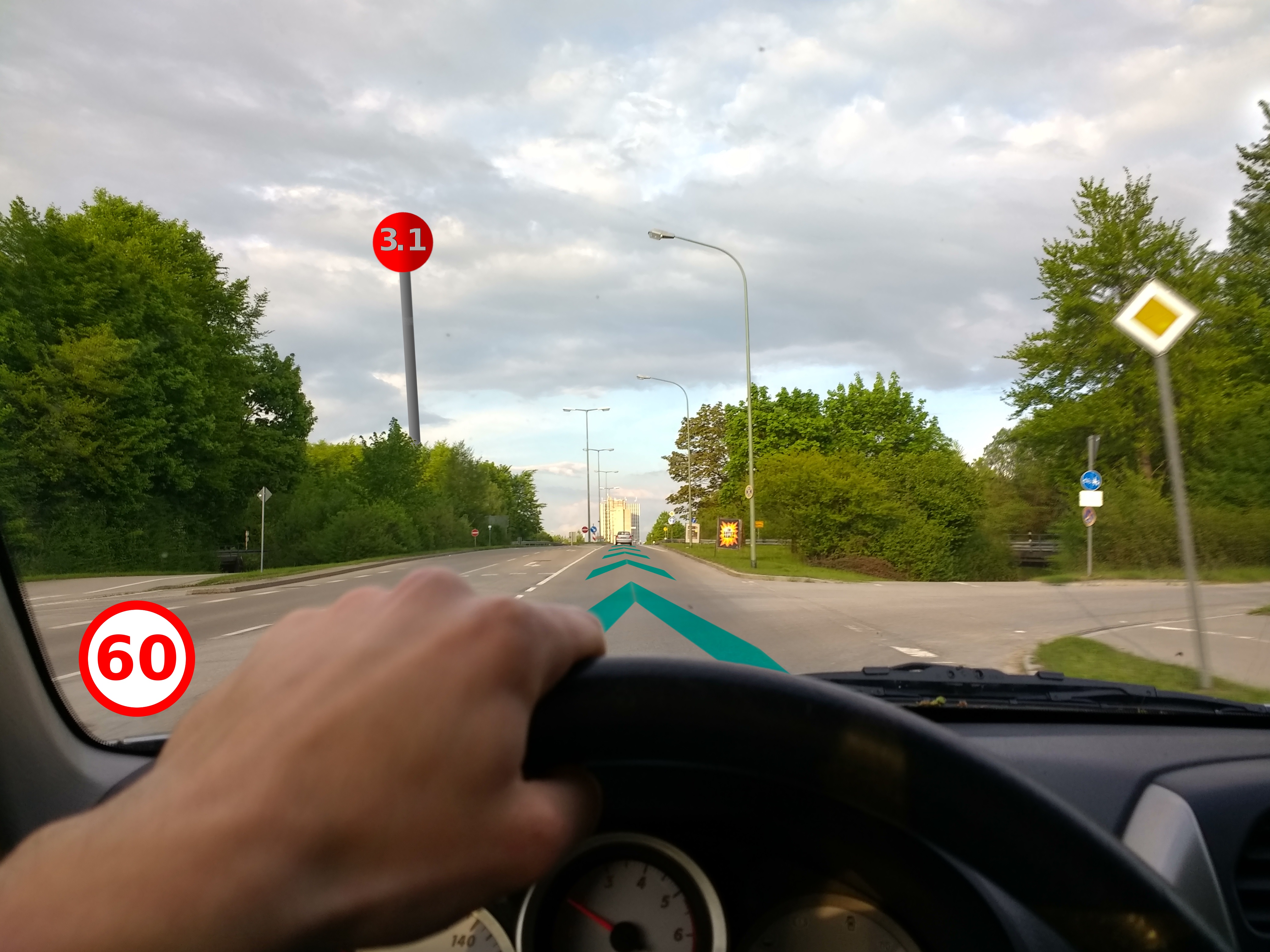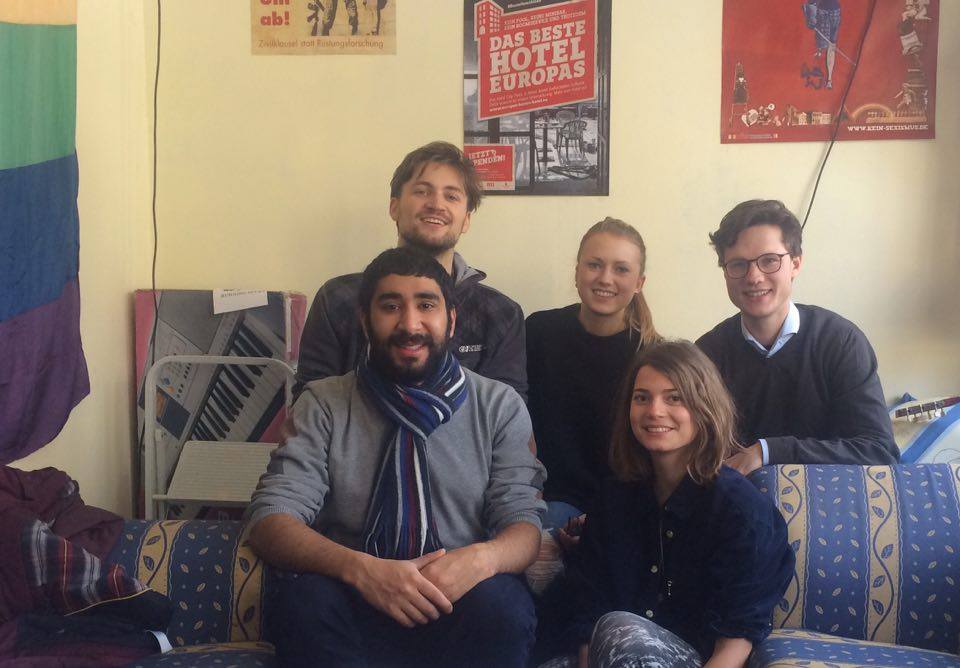It’s impossible not to see the fear on the woman’s face. Her eyes are wide open and tears are trickling down her cheeks. But why? With a bit of a weird feeling, I look around the place. I’m at a colourful market where hundreds of busy people bustle among the booths. However, in a dark corner, separated from the crowd stands the small booth, the desperate woman has just left. The entrance to the booth is covered with cloths and a whiff of smoke fills the air nearby. An antiquated sign reads the offer: A look into the future.
 Bit of history
Bit of history
For centuries, this kind of knowledge has been a valuable commodity, which provides those who claim to have it with enormous powers. The most famous of the so-called seers is without doubt Nostradamus. Born in 1503, he not only predicted the fate of the French king Louis XVI and the reign of terror under Adolf Hitler – above that, some of his convinced supporters assert that Nostradamus also forecast the recent election of Donald Trump. But as remarkably accurate some of Nostradamus’ prophecies are, many historic predictions allow numerous interpretative approaches, presenting a perfect target for different groups of people.
While some of them are already discussing Doomsday, others are more interested in extending their wealth with the diverse business of fortune telling. Of course, those fortune-telling products no longer focus on powerful prophecies. Instead, most of them are based on astrological interpretations of celestial bodies, also known as horoscopes.
Trading with the future
Nowadays horoscopes not only feature in many lifestyle magazines; they also help many people make important decisions. But how can a large and diverse audience create individual connections with the horoscopes? The answer is quite simple: by leaving enough room for interpretations. This will ensure that readers are able to identify with their horoscope and are retrospectively convinced that it came true.
Looking at an out-to-date horoscope from January 2017 confirms this assumption. It may sound a bit weird, but the horoscope seems unbelievably expressive and meaningful, while at the same time also kind of trivial. Among other things, the horoscope encourages me to let go of my own mask to earn some mysterious gifts. What could that mean? I basically spent the whole of January studying for some important exams. Could good marks be the promised reward? But what is the secret of the cryptic mask? As of yet, unanswered questions abound and there are no limits to imagination. In a nutshell, this is exactly what horoscopes are all about. It doesn’t matter if a student like me, a successful career woman or a family man reads the horoscope – the horoscope offers something for everyone.
It’s within ones power
After all, there are lots of people who draw strength and motivation from horoscopes. However, it does become problematic when people completely adjust their lives to fortune telling, thereby giving negative predictions too great a hold on them. We all have a free will and are able to shape our own future. And as Abraham Lincoln once said, “The best way to predict the future is to create it”.
Text & Picture: Solveig Paulsen



 With the big splash Virtual Reality headsets have made over the last year, with the releases of consumer headsets like the Oculus Rift and the HTC Vive, the holodeck seems to be well on its way to our living rooms, but so far, VR also seems to remain a feature reserved for games. Augmented Reality (AR), the other side of the alternative reality coin, might prove more versatile. Interestingly enough, it was a game that finally introduced a larger audience to it: Pokémon Go. Instead of creating a virtual world for you to roam around in, AR adds things to the real world that you can then interact with in real time. In Pokémon Go this was still mostly a gimmick, but there’s a lot of potential in this technology. Here are some ideas.
With the big splash Virtual Reality headsets have made over the last year, with the releases of consumer headsets like the Oculus Rift and the HTC Vive, the holodeck seems to be well on its way to our living rooms, but so far, VR also seems to remain a feature reserved for games. Augmented Reality (AR), the other side of the alternative reality coin, might prove more versatile. Interestingly enough, it was a game that finally introduced a larger audience to it: Pokémon Go. Instead of creating a virtual world for you to roam around in, AR adds things to the real world that you can then interact with in real time. In Pokémon Go this was still mostly a gimmick, but there’s a lot of potential in this technology. Here are some ideas.

 The very first celebration of the failed gunpowder treason took place right after Guy Fawkes was arrested. The King’s Council had allowed the public to celebrate the King’s survival with bonfires. The following year Parliament passed the Observance of 5th November Act (also known as “Thanksgiving Act”) in order to remember the failed attempt to murder King James I of England. What the celebrations were like during the first years can only be speculated, though we know that at least in some communities music and artillery salutes were part of the festivities. The events were mainly for local dignitaries to start with, but were extended steadily.
The very first celebration of the failed gunpowder treason took place right after Guy Fawkes was arrested. The King’s Council had allowed the public to celebrate the King’s survival with bonfires. The following year Parliament passed the Observance of 5th November Act (also known as “Thanksgiving Act”) in order to remember the failed attempt to murder King James I of England. What the celebrations were like during the first years can only be speculated, though we know that at least in some communities music and artillery salutes were part of the festivities. The events were mainly for local dignitaries to start with, but were extended steadily. Today, every kid knows the name. “Remember, remember…” is a nursery rhyme every kid in Great Britain is bound to hear at some point. Still, when you ask people about the reason for bonfires and firework – more often than not the question results in puzzled looks. People do have a vague idea, of course, but nowadays people seem to be more interested in partying than knowing what makes this date special in the first place.
Today, every kid knows the name. “Remember, remember…” is a nursery rhyme every kid in Great Britain is bound to hear at some point. Still, when you ask people about the reason for bonfires and firework – more often than not the question results in puzzled looks. People do have a vague idea, of course, but nowadays people seem to be more interested in partying than knowing what makes this date special in the first place.






 After an even later breakfast on Sunday, the bags have to be packed. Being tired (and sometimes a bit hungover), you realize what’s coming: a train ride, lasting longer than an eternity; then a tram ride, most often packed with smelly people next to you; an exhausting walk home, because you don’t have one of those trendy suitcases with wheels on them and your bag gets heavier and heavier with each step you take. You’re finally there, so you unpack your bags, put your home-laundered clothes into your wardrobe, and store the food you brought in your fridge. Sleepily, you sink into your bed and as you’re about to fall asleep, you suddenly remember: there was homework due tomorrow!!!
After an even later breakfast on Sunday, the bags have to be packed. Being tired (and sometimes a bit hungover), you realize what’s coming: a train ride, lasting longer than an eternity; then a tram ride, most often packed with smelly people next to you; an exhausting walk home, because you don’t have one of those trendy suitcases with wheels on them and your bag gets heavier and heavier with each step you take. You’re finally there, so you unpack your bags, put your home-laundered clothes into your wardrobe, and store the food you brought in your fridge. Sleepily, you sink into your bed and as you’re about to fall asleep, you suddenly remember: there was homework due tomorrow!!!
 About 20,000 students populate the University of Augsburg, which means different people from all over the world, who, at first sight, have almost nothing in common. Well, they’re all students, of course – mammals with particular habits, such as the mass migration from the campus buildings to the Mensa at 1.16 PM. So, as I’ve spent a lot of time in lectures and courses, it’s quite simple to divide the student animal kingdom into three main categories…
About 20,000 students populate the University of Augsburg, which means different people from all over the world, who, at first sight, have almost nothing in common. Well, they’re all students, of course – mammals with particular habits, such as the mass migration from the campus buildings to the Mensa at 1.16 PM. So, as I’ve spent a lot of time in lectures and courses, it’s quite simple to divide the student animal kingdom into three main categories… 
 When I started to study, I didn’t realize how many different ways of volunteering there are. Since I had to give up my voluntary work in my hometown, I wanted to get involved again. A friend took me to the Sozialreferat at the University of Augsburg. From the beginning, I was enthusiastic about their ideas and I’m convinced that if they’re implemented, they’ll benefit students a lot. But see for yourself…
When I started to study, I didn’t realize how many different ways of volunteering there are. Since I had to give up my voluntary work in my hometown, I wanted to get involved again. A friend took me to the Sozialreferat at the University of Augsburg. From the beginning, I was enthusiastic about their ideas and I’m convinced that if they’re implemented, they’ll benefit students a lot. But see for yourself…